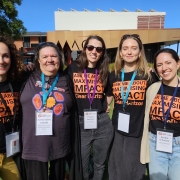Area’s to Consider When Delivering Training
As part of our internal staff capacity building at Clear Horizon, we organise fortnightly learning and development sessions. Last week we discussed adult learning principles and styles, and how these guide the facilitation process of training activities and workshops that we deliver.
In the 1970’s, Malcolm Knowles coined the term “andragogy” which refers to methods and principles used in adult education. Later in 1984, he identified six adult learning principles including:
- The need to know: Adults need to know why they need to learn something before they learn it.
- Self-concept: Adults like self-direction. They grow to be independent learners, responsible for their own decisions.
- Experience: Adults come to training with a great deal of ‘life’ experience which should be drawn upon and used as a learning resource.
- Readiness to learn: Adults are more ready and willing to learn things that are relevant to them and that may help them to cope with real life situations.
- Orientation to learning: Adults learn best when they can immediately apply what they have learnt to real life situations.
- Motivation: Adults learn best when they are motivated to do so with intrinsic motivators more effective motivators than extrinsic.
Additionally, adult learning styles are the other important area to consider when delivering training. Adult learning styles refer to learning approaches that individuals naturally prefer to maximise their personal learning experience. Peter Honey and Alan Mumford, based upon the work of Kolb, have identified four adult learning styles including:
- Activists are those people who learn by doing.
- Reflectors are people who learn by observing and thinking about what happened.
- Theorists are people who like to understand the theory behind the actions.
- Pragmatists are people who need to be able to see how to put the learning into practice in the real world.
A question raised on the adult learning principles for non-western learners that may be dissimilar to these adult learning principles coined by Knowles. Please share your thoughts on the differences between western and non-western adult learning principles via our twitter @ClearHorizonAU.
Resources:
Mobbs, Richard. Honey and Mumford. Retrieved from: https://www2.le.ac.uk/departments/doctoralcollege/training/eresources/teaching/theories/honey-mumford
Adult Learning Australia. Retrieved from: https://ala.asn.au/adult-learning/the-principles-of-adult-learning/












